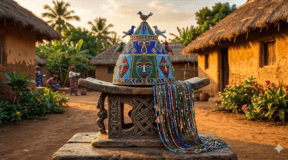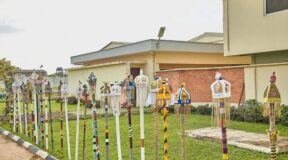Law Proposing multiple husbands
OpenLife Nigeria reports that there are mixed reactions by men and women across Africa over law proposing polyandry.
South Africa government is currently considering new marriage law that recognises women with multiple husbands.
The law proposing polyandry to be legally recognised as a form of marriage in South Africa, however, has generated reactions across the continent and beyond.
While the country’s marriage laws could in the near future allow women to marry more than one husband, just as polygamous men can have many wives, there is still uncertainty surrounding the concept.
Legalisation of polyandry is one of the wide-ranging proposals in the South Africa Green Paper on Marriages.
Home Affairs published the landmark 67-page policy document during the week.
The department stressed in the document that it sought to create a new marriage act that will allow all in the country to conclude recognised, legal marriages.
According to the department, a range of types of marriages in the country were not recognised; and on the other hand, marriage legislation was deemed to not promote equality.
The department noted that Hindu, Jewish, Muslim and Rastafarian marriages were not recognised by South African law and the Green Paper also puts up proposals for their recognition.
“The failure to recognise these religious marriages is untenable and discriminatory,” said the document.
Home Affairs hosted ministerial dialogues in 2019 and 2020 before producing the Green Paper.
The Home Affairs Minister, Aaron Motsoaledi and other officials, heard and collated opinions from stakeholders, including traditional leaders, gender activists, religious leaders, academics and Lesbians, Gay, Bi sexual and Transgender, LGBT.
The document disclosed that “Moreover, activists submitted that equality demands that polyandry be legally recognised as a form of marriage.”
The Green Paper proposed three new marriage regimes which it considers would bring about equality in marriage laws.
According to the Green Paper, option one is an “inclusive customary and religious marriage regime,” which would see the Recognition of Customary Marriages Act amended to cater for all marriages irrespective of race, cultural and religious persuasions.
The other option is a religion and culture-neutral marriage regime. The third option however, is a genderneutral marriage regime.
“The third option would accommodate both polygamy and polyandry,” said the document.
“The difference between options 2 and 3 is that this option is gender neutral. Therefore all marriages, whether monogamous or polygamous, could be concluded regardless of the sex or sexual orientation of the person.”
Curiously, the Home Affairs Ministry appears to favour the third option, saying it promots equality.
According to them “The political appetite of the country to confront the challenges of the current marriage statute will be tested through these options. However, if Section 9 of the Constitution is to be implemented in its entirety, option 3 will tick all the boxes,” the department said in the Green Paper.
Polyandry and polygamy emerged as some of controversial topics during the ministerial dialogues.
Traditional leaders were among those who objected to polyandry and labelled it an “unacceptable practice because it is not of African origin”, revealed the document.
“Ironically, stakeholders who believed in the practice of polygamy (polygamy) were opposed to the practice of polyandry,” commented the department.
Going by the planned implementation, OpenLife Nigeria further gathered that the public has until the end of June to comment on the department’s proposals.
Meanwhile, Pretoria activist and advocate for lesbian and gay unions, Lebo Khumalo said: “It is about time this became a norm. For instance, we are recognised as same-sex couples, but that we do not have the freedom to marry more than one partner – that is a downside.”
He added that he has strong cultural beliefs about marriage, one of which is being able to marry more than one partner saying “This of course is misunderstood, but it’s, for us, no different from that of straight men.
“For instance, I could want to marry a second husband if there are issues my husband cannot meet, or if I needed the strength and resources to uplift my family. Let the laws of the land allow this.”
In like manner, Cebile Chabedi, sees it differently stressing that the institution of marriage is being messed up with the concept of polyandry. Polygamy, she said, is outdated and should be outlawed.
“Get rid of it. It once served a purpose, but values have been lost along the way and now no one knows what purpose it serves.
“Imagine allowing women to marry more than one man; that is a recipe for disaster. Not only because men are actively jealous and can get violent over who they ‘possess’, but even as nature states, no two bulls can live in the same kraal,” she said.
Bonginkhosi Malaza, a culture and traditional expert, added that : “Polygamy has its roots in certain cultural aspects, and was put in place to fulfil a gap in society.
“What informs a woman marrying more than one husband, if not for revenge, if not for power, if not to command a position in society?”
But the Home Affairs Ministry said it was aware that the process would ruffle feathers, but maintained the changes were necessary.
“This is the beginning of a crucial public discourse that will re-define the concept of marriage in South Africa,” the Ministry said.
“The process will unearth issues that may make some of us uncomfortable, but will encourage dialogue within the South African and international communities.”







